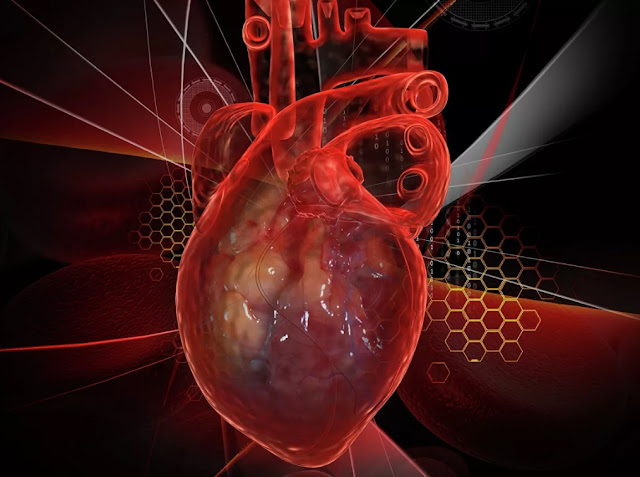Scientists have found out how to restore the heart after a heart attack
Cardiologist scientists have discovered a key protein that helps the heart regulate oxygen flow and blood flow, repairing damage. Study results Published in the Journal of Biological Chemistry.
In a heart attack, biochemical processes are triggered, which lead to damage to the heart - there are losses in tissues and muscles, interruptions in blood flow and oxygen flow. Since the heart itself is not well restored, cardiologists are looking for ways to help it and minimize the damage.
American scientists from the University of Utah California In the San Diego together with German colleagues, we found that the protein MANF, the mesencephalic astrocytes of the neurotrophic factor, played a key role in the recovery of the heart and, accordingly, in improving patient survival. It is able to repair damaged and even reconstruct other lost proteins, acting as a protein regulator.
"The more damaged your heart is, the worse the prognosis is in the long run, so that's what our study is focused on," study leader Chris Glembotski, a molecular cardiologist and director of the San Diego Institute of Cardiology, said in a university news release. "We are studying how to make the heart more resistant to heart damage from a heart attack, which will improve patients' recovery."
With the standard approach, many patients after a heart attack insert stents to open the blocked arteries, which helps in the long run. But the influx of oxygen has drawbacks.
"The oxygen surge that occurs as soon as the stent is implanted "stuns" the heart cells, and some of them die, which increases irreparable damage. We've found a protein that can minimize this stress," Glembocki explains.
Scientists conducted experiments on genetically modified mice, causing them a heart attack and observing how they would recover with and without the MANF protein. It turned out that in the presence of MANF animals felt much better.
"This was our first clue about the importance of MANF protein to the heart," says the paper's first author, doctoral student Adrian Arrieta. "It has a protective effect, but we didn't know exactly how it works because it's structurally different from the proteins we've studied before."
It turned out that MANF reduces the level of initial oxidative stress after a heart attack, accompanied by the devastating effect of excess oxygen.
For the first time after a heart attack, doctors call the "golden period" when intervention aimed at reducing severity and damage can significantly increase the chances not only of survival, but also the restoration of heart functionality. Researchers suggest that their discovery will lead to the creation of a protein drug that will be promptly administered intravenously to victims of a heart attack.
"One of our most interesting discoveries is that we found that MANF is a protein-caperon that supports other proteins during stress," Arrieta said. "If we could give victims a MANF heart attack, they would have less damage after a heart attack and they would recover faster."
Researchers plan to soon study the effect of the protein MANF on pigs, whose heart is in size, and whose symptoms after a heart attack are very similar to human. In addition, one of the tasks, according to the authors, remains to find the best way to deliver MANF to the heart.




Comments
Post a Comment